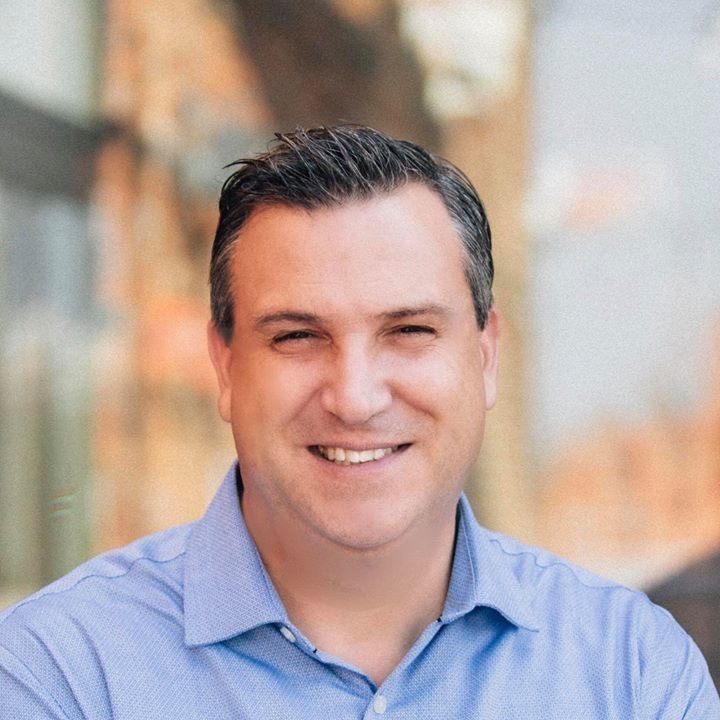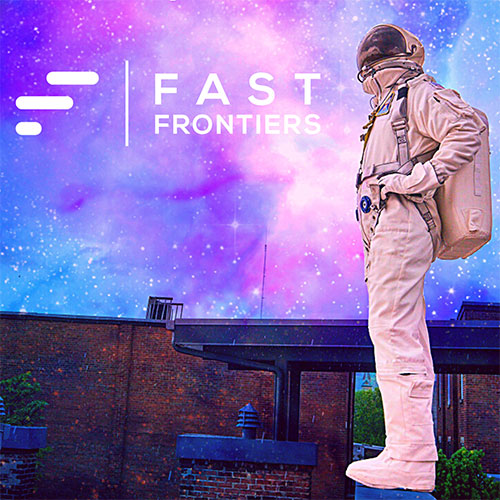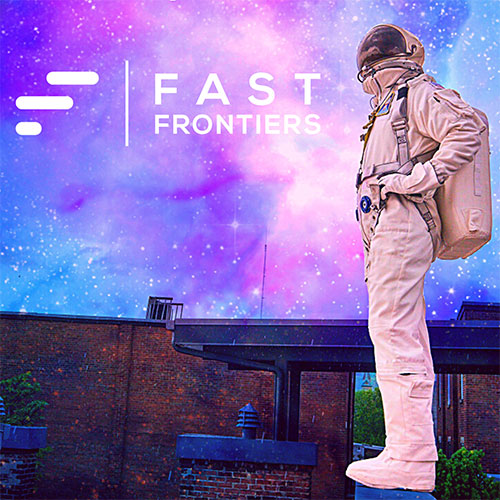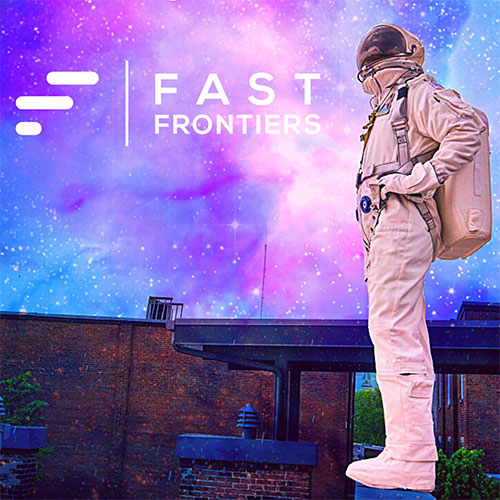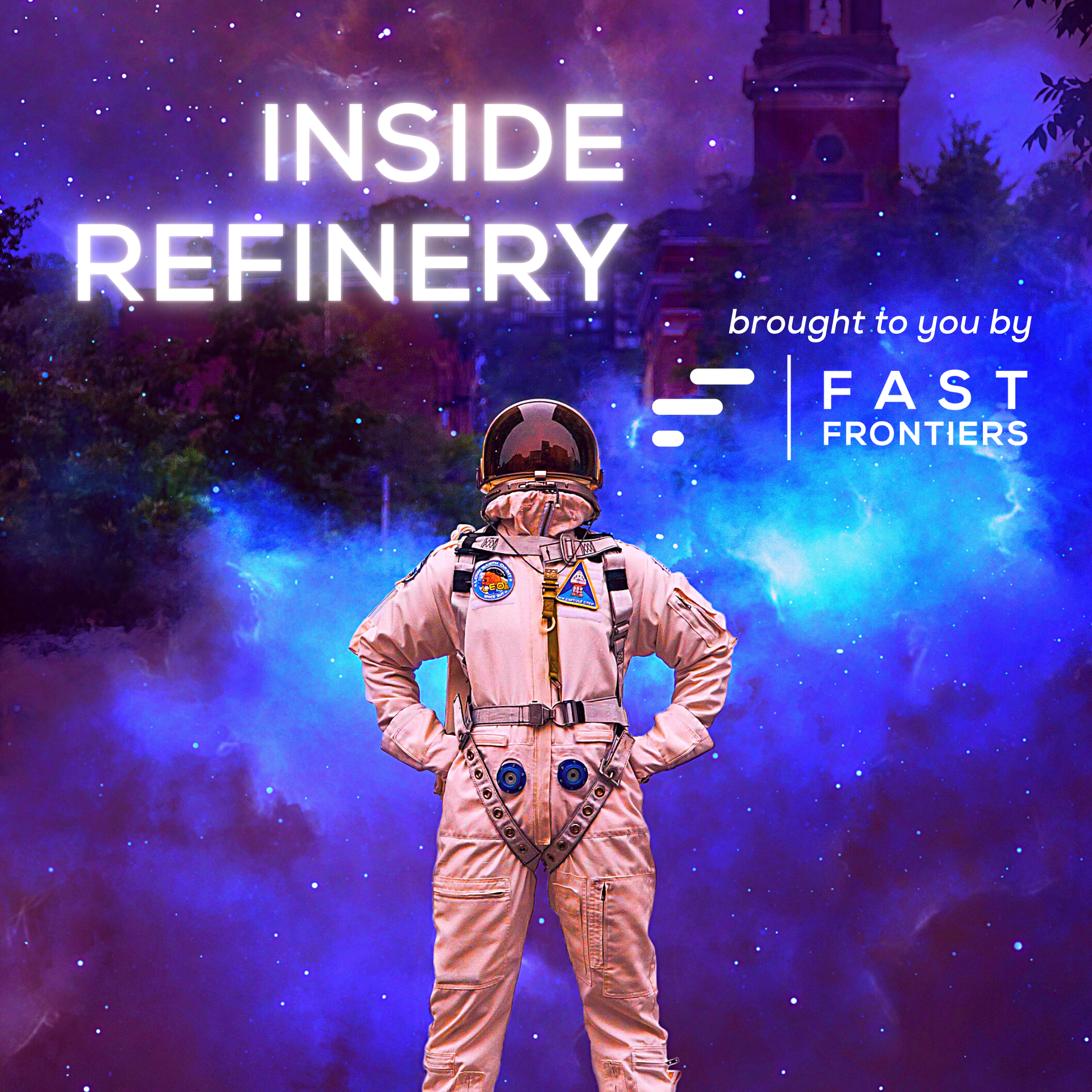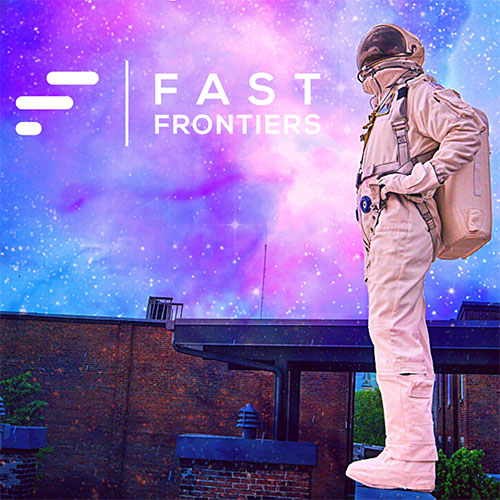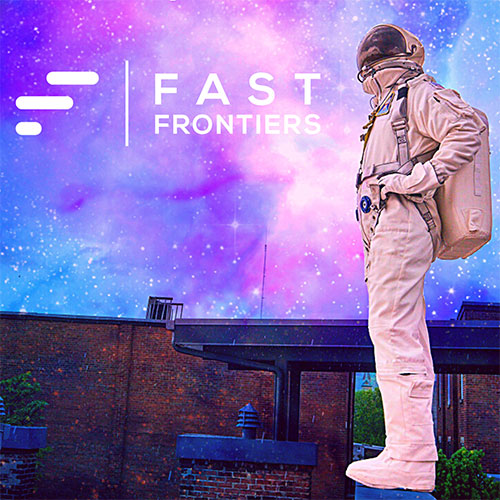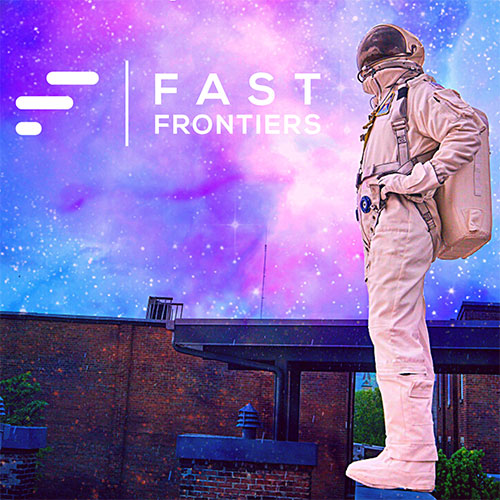S5 Ep 5. Pete Blackshaw: CEO of Cintrifuse
- 0.5
- 1
- 1.25
- 1.5
- 1.75
- 2
Tim Schigel: Welcome to Fast Frontiers. I am your host, Tim Schigel, Managing Partner of Refinery Ventures. In this episode, we're talking to Mr. Pete Blackshaw, CEO of Cintrifuse, a startup incubator and syndicate fund to funds created by major institutions in the Cincinnati area, such as Proctor& Gamble, Kroger Company, Western& Southern, Great American Insurance, and the major universities in the area such as University of Cincinnati and Northern Kentucky University. In this episode, we're going to dive into the initiatives that get Pete excited, such as sustainability, the reinvention of supply chains, electrification, and zero- waste initiatives. We'll also discuss what it's like creating a startup economy in a city like Cincinnati, and why VC should be investing in the region. The biggest theme or so what I hope you can take away from this conversation is that there's great potential in unexpected places such as Cincinnati to collaborate between big companies and industry and startups and venture capital. Even the Cincinnati Airport is in the game, testing new technologies every day. Please enjoy my new conversation with Pete Blackshaw. Pete Blackshaw, welcome to Fast Frontiers. This is amazing. We did it. Two universes colliding at the same time in almost the same space, virtual of course. Narrow miss; we almost were able to do this physically in the same spot.
Pete Blackshaw: Better late than never.
Tim Schigel: Welcome. Yeah, absolutely. Absolutely. Thank you for being on Fast Frontiers, here in Cincinnati, Ohio, Pete Blackshaw CEO of Cintrifuse. There are so many things to talk about, but first by special request, when people found out that you were going to be on Fast Frontiers, the first question was, " Hey, you guys go back a long way." What's what's your history with Pedro?
Pete Blackshaw: Where are the bodies buried?
Tim Schigel: Well, I don't know if we're going to get into all that, but yeah. Maybe some of it. At the time, I was at Blue Chip Venture Company, which I joined in'98.
Pete Blackshaw: Wow!
Tim Schigel: Yeah, and it was the internet. com bubble. We didn't know about a bust, and we met because you were off to launch a new company. I'll let you take over from there.
Pete Blackshaw: Yeah, I mean, first off, I'll say that I tripped into Cincinnati by way of after business school, was heading back to the West Coast and decided to get my first job at Proctor& Gamble, and wanted to get the... I always had entrepreneurial ambitions, but I wanted to wear the brand straight jacket if you will, or get those basics. And had a chance to do traditional branding, launched a few products, Bounty Napkins, Impress Wrap. And then was the first person to raise my hand to be the co- lead of... Remember back then, we called it interactive marketing, not digital marketing?
Tim Schigel: Oh, yeah. Oh, yeah.
Pete Blackshaw: Which I still think was a better term. We should try to resurrect it. And yeah, was the early co- founder, if you will, of P&G's interactive marketing effort. And during that time, had stumbled into a really big insight around the power of feedback on the internet. It sounds like such a no- brainer today, but looking back, it was such a big epiphany. And I know you later got into that through ShareThis, but yeah, this notion that the internet's the world's greatest focus group, and there's probably big opportunities to tap into that, to monetize it, to translate it into data, to translate it into ASP services, and hence was the big idea of PlanetFeedback, which I was moonlighting at Proctor for about nine months, until I knew I could raise money. And that's where you and I bumped into each other, because I was working the circuit and Blue Chip was the local money. And I had managed to get some money in New York and you guys joined in and were fantastic board members, and that was quite a journey. I would love to say it was an easy win startup, but got bloodied, battered, merged, merged again, but we had a good exit and I learned a ton.
Tim Schigel: crosstalk And yet survived, yet survived.
Pete Blackshaw: I survived.
Tim Schigel: Yes. And some people made money.
Pete Blackshaw: Some people made money.
Tim Schigel: Yeah, absolutely. Counted as a W.
Pete Blackshaw: Counted as a W. You learn a lot through the mistakes, I'll tell you.
Tim Schigel: Yeah. So ultimately, where Nielsen Buzzmetrics as it was called after those various incarnations, and then off to Switzerland.
Pete Blackshaw: Yeah.
Tim Schigel: With Nestle, and you were there for-
Pete Blackshaw: Yeah, that was-
Tim Schigel: Was it eight years, right?
Pete Blackshaw: Yeah. Nearly eight years. Yeah, I've got this schizophrenic mix between these startup experiences and big companies like P& G, Nestle, and Nielsen. And right now, at Cintrifuse, we'll come back. We'll come to this in a moment, but I'm sitting in the middle, but yeah, Nestle was a great experience. And this was a company that we were actually monitoring through the tool that I developed, that we developed to track online buzz, word of mouth. And Nestle had a lot of complicated issues, I'll put it very diplomatically. But one thing I learned is that if you have supply chain issues or controversies, those issues will find life through the internet. And in fact, Greenpeace had gone after Nestle big time on a sustainable supply chain issue, palm oil, and to some extent, they brought the company to its knees and the board practically threw its hands up in the air. And that's what created my job. They created a VP- level Head of Digital. They wanted to bring in an outsider and then they made it a cross between reporting both to the global CMO and to the Head of Public Policy, all the folks that were in charge of those really complicated issues around supply chain and corporate responsibility, and it was a fantastic job. I learned a ton. It seeded a lot of the thoughts that I've now brought back to Cincinnati, but I think they had 2, 000 brands from Nespresso to Purina, and it was a really great, great, great experience.
Tim Schigel: Some of us live vicariously, some actually went there to Vevey, Switzerland, Montreux, Switzerland. You and I have a picture next to this giant fork crosstalk, I think it was, that we were crosstalk-
Pete Blackshaw: Exactly.
Tim Schigel: Yeah. I got to present for ShareThis at the... Exactly, in the Miles Davis Convention Center.
Pete Blackshaw: I love that. I went there every summer.
Tim Schigel: I brought my guitar and came out playing like Led Zeppelin. That was the beginning of the presentation.
Pete Blackshaw: Oh, that's fantastic. What a great place to do it!
Tim Schigel: The most epic trip. Yeah. So I got to say I played Montreux. So, and then lo and behold, Cintrifuse looking for a new CEO, and your name emerges and that was three years ago now?
Pete Blackshaw: Yeah. That was-
Tim Schigel: About three years ago now. Cintrifuse, for those who don't know or remember, that's the startup collaboration company I'll have Pete tell you a little bit more about, but I was involved with in the early days and raised the first two funds, about 120 million that we used to invest in other early stage venture funds, to grow the ecosystem in the region. So I was there the first four years, remained active on the board there. As any organization, Cintrifuse has grown, changed, adapted. So tell us a little bit more about Cintrifuse today from your vantage point.
Pete Blackshaw: Well, listen, I think the core mission remains the same. We are trying to create a world- class startup economy, innovation economy in Greater Cincinnati. And we do it through three core services. We have a storefront of services for startups, so at whatever stage that you are, whether it's concept or you've got the team, or you've got the seed money, and now you want to get the Series A, we will help you at any stage of the journey. We are a one- stop shop for a range of services, and part of that advantage is that because we're an ecosystem builder, we can route you to other services. There is a wealth of offering within Cincinnati from Refinery to CincyTech, to a bunch of accelerators, to a world- class venture mentor network, and we will route you accordingly. And we've had a lot of success. I think we've got about 150 to 200 members. It's practically free, because we're subsidized by the state and others. So part of it is we help startups win. We also have, and this is what you helped to create, and I think is what makes our model so substantially unique is this syndicate fund of funds. We invest in the best innovation and the innovators in the world, and the theory is that will heighten visibility in the local deal flow, provide the innovation that our large companies need. Some desperately need, to really reinvent their path to the future. And then the third part is that we drive a lot of corporate innovation, and the theory being that if we help P& G or Scripts or Kroger or Western& Southern innovate, in all likelihood, they're going to look to the startup economy to grow, and that's typically what happens. They go outside, they look outside, and we're trying to create that wonderful symbiotic connection between the startups that are eager to solve the future and the big companies that really need that help often from the little startup, and I learned that very clearly at Nestle where the vast majority of innovation in the food space was coming from the long tail, not the big... The Danones or the Unilevers. It was the long tail of small startups that were leveraging digital speed, capability, know how, can do to reinvent the world. So we're in the mashup business.
Tim Schigel: You have to. One of the companies in the ecosystem, an investor and supporter is AAA. So AAA, there are a number of large regional AAA companies, member companies. And the one in Cincinnati is actually based in Delaware, but they're active in this region. They've been very active. They are very active on sourcing innovation. As a matter of fact, they are working on a project with one of our portfolio companies I just learned last week, which is fantastic. So whether you're an entrepreneur in the region or even outside the region, some of the events you might mention, Pete, a couple of the events that you've had, industry- focused events, because I know we have a company based in Vancouver that came out from one of the events here and they were just blown away and made a ton of industry contacts.
Pete Blackshaw: Yeah, programming's a really big deal. We have an event called Startup Cincy Week, which is probably our most comprehensive. I think we had about 1, 800 attendees, 60 speakers, a bunch of panels. It was about 50% diverse, so we really take pride in the fact that there's a big symbiotic relationship between diversity and innovation. And yeah, we attract a lot of outsiders that come in to get a taste of what we have to offer in our region. And the one thing that's great about Cincinnati, and I say this is a native Californian, once you visit this place, you're hooked. I mean, there are so many latent advantages of this region. If you're going to start a company, everybody told me to get out to Silicon Valley after I left Proctor& Gamble, when I raised money. But I said, " No, I'm going to do it down in what I call the Digital Rhine," which since then has become I think one of the most dynamic entrepreneurial urban hubs in the country, bar none. And yeah, but that's what we're trying to do here.
Tim Schigel: Yeah. I'm a little sad that the secret's out, quite frankly, because now post- COVID, et cetera, I always thought of the location here as actually a strategic advantage. And then looked for entrepreneurs who understood it's a strategic advantage because they would... If somebody said, " Oh, but can you hire tech talent in Cincinnati?" My comeback was, " Can you hire tech talent in Silicon Valley?" You have a whole different set of competitors, so-
Pete Blackshaw: It's getting more complicated.
Tim Schigel: ...it seems like everybody's figuring this out now. There are more and more new companies here.
Pete Blackshaw: It's getting trickier and more complex, but I generally think it's all working to our advantage. Today, I just bumped into someone at Union Hall, who's part of a drive capital portfolio company, Olive, and I said, " How many people are are working here in Cincinnati?" She said 30 of their employees are here in Cincinnati. I heard there's a top Google exec that's building a house in Hyde Park, because he wants to live in Cincinnati. When I was first working with you 20 years ago, it was black or white. You're either door number one, it's like, you're literally all in Cincinnati or you're not. And now I think there's going to be some really interesting hybrid models that I think will work to our advantage. You can find that tech team anywhere. Hopefully you can find it here, drawing on the talent pool, but it's going to get very, very interesting and I intend to turn that into an opportunity.
Tim Schigel: Yeah. And recently, you just reminded me, Jobs Ohio recruited Intel, building a chip fab here just outside of Columbus. So it's amazing. Amazing.
Pete Blackshaw: Massive. Well, not only that, I mean, it's the world's biggest chip fab and it's also the world's most greenest chip manufacturing, and that's just going to have massive implications for the entire Midwest supply chain, talent pool. Good news for Ohio State. Great news for UC. I mean, it'll be like the gift that keeps on giving, but most importantly from a perceptions perspective, I mean, what we need to do is reduce dissonance. You talk to someone on the coast, Boston, San Francisco, LA, and you say, " We have the world's largest chip plant in the Rust Belt," it changes the way they think. And the same way when you tell them that our airport is now the number one ecommerce distribution hub in the country, maybe the world, I got to double check on that. It changes the way people think and it opens them up to the possibility of doing business here.
Tim Schigel: Yeah, absolutely. So you mentioned the airport, and I'm actually going to do a tour of Amazon's facility tomorrow, actually.
Pete Blackshaw: Oh, fantastic. I'm taking a tour tomorrow morning.
Tim Schigel: Carpool, yeah. You're more up to speed on some of the speeds and feeds and dimensions and the impact of that. Can you share?
Pete Blackshaw: Yeah, first off, it's one of the most exciting stories. When I left for Switzerland, the airport was not in good shape. It was a bit of a laughing stock. It was losing passenger seats. Delta was slowing down, and it was a bit of a... Laughing stock would be maybe too harsh a word, but it certainly wasn't that first source of pride. Now it is one of the fastest growing airports in the world. It's definitely the fastest growing air cargo hub. And if you add Amazon plus DHL, both of which consider that hub as their headquarters, that is a massive amount of shipping that goes through it. When you add Wayfair, UPS, and there's a lot of like supply chain operations that are there, this is why I call it the great supplyway. It's a great supplyway to America and to the world, and I believe that it's always been an advantage for us, but as supply chains reinvent themselves, become more resilient, become more sustainable, we have the opportunity to reinvent the future right here in Cincinnati. And the airport is also inspiring, because it's led by a woman named Candace McGraw, who I think has really almost defied gravity in terms of what is possible. Almost taking the initiative, calling up Jeff Bezos and saying, " Come to Cincinnati." And she's got a Lieutenant Brian Cobb who is reinventing the rules of pilots with startups. They do 80 pilots at a time with startups. Let me say that again. And everybody from P&G and Kroger and Western& Southern listening, they do 80 pilots at a time with startups and they do it really, really well. And that's why startups across the world are looking at the airport as a platform. ThorDrive and others, Drop Water. Again, Losant, which is really on the bleeding edge of IOT, and that is a great competitive advantage. I think the hubs that win have startup platforms that are welcoming and really, really fast with other startups. And we hope to get Proctor and Kroger in that same place, and they're doing some great work to that. But the airport is really setting a bar that is getting attention across the world.
Tim Schigel: It's amazing. Brian Cobb from CVG Airport is... It's going to be a guest-
Pete Blackshaw: Love that.
Tim Schigel: ... on here,on Fast Frontier, and it's amazing. You'd be blown away. You wouldn't think. What, an airport? But they are innovating on every dimension possible. They want to know, " What can we do? What's possible?" So yeah, if you're a startup-
Pete Blackshaw: Sustainability, I mean, airports are... People don't realize this, but yeah. Airports are on the bleeding edge of sustainability, whether inside the building, how they deal with plastics or whether they're thinking about alternative jet fuels and yeah, it's breathtaking. And I really want to make sure that we take big advantage of that. It also means that we have to take a zip code agnostic approach. We can't be parochial. We can't just talk about Ohio. We have to talk about Ohio and Kentucky and Indianapolis, which is really difficult. Because a lot of the incentives at the state level are very, very provincial. Like you can only help Ohio jobs and I'm trying to helicopter up and say, " Hey, listen, growth mindset, my friends. Think about the great supplyway. It can feed the entire Midwest and then some." And that's been my big strategy and I think people are really starting to pick up on it in a big way.
Tim Schigel: Yeah. It's very tricky to navigate and good for you for doing that, and staying above that. What are some of the other initiatives that has you excited about the future of the region and Cintrifuse?
Pete Blackshaw: Well, one of the interesting initiatives that I had a chance to lead in the wake of COVID, Cintrifuse and CincyTech were asked to chair a couple task force, one on the future of supply chains, which I shared. Mike Venerable from CincyTech shared one on biohealth. And obviously, there's some really strong incumbent strengths there with UC Health, Children's, and the like. But I really tackled supply chain. And what was interesting is that we had all the major heads of supply chain for DHL, P&G, Cintas. I mean, you name it. Mercy Health, which is a huge player, and yeah, we defined what the future would look like. And the thing that really surprised me, Tim, and I did not anticipate this and you may think, " Okay, he's got a California bias," but I did not, is that 80% of the reccos from our future of supply chain task force were about green, whether it was last mile delivery, the big thing is carbon neutral last mile delivery. We had a whole track of work around food from seed to plate, and the real story behind 80 Acres, which just raised$ 161 million, which for about a month was our largest raise. They are reinventing food supply chains, healthy supply chains, which maps to what Kroger's priority, which is the future of fresh. So you've got this whole reinvention of supply chains on the fresh and sustainable side. And then we got really deep on circular economy, which is a massive opportunity for everyone. That's how do we get into biodegradable plastics? How do we do down- cycling/ up- cycling? And that is a big reason why I've been almost to a fault probably driving my team crazy, but have been adamant that we have got to claim the green space. We're already in a city that is getting at the top of all these national scorecards on most sustainable city by New Builds, by Zoo, by you name it, Parks, Trails. But there is an almost mind- boggling amount of money that is being poured into this sector. And it's not just the ESG funds. It's just any fund that wants to make money realizes that this is where the buck is going. Just think about, for example, of the$ 16 billion in money that's going to Ohio, $ 8 billion going into Kentucky on infrastructure. If you really get into the weeds of that legislation, which both Republicans and Democrats supported, there's a lot of green incentives, from transportation to electrification. You name it, there's also a lot of money that's pouring into broadband. Of course, that's great for entrepreneurs. Well, what is going to go in that broadband? so just a lot of upside for us if we develop a strategy and I think what we need to do, and this is what's keeping me up at night, because topics like green and sustainability are really broad. What within those sectors can we win? And the two that I am thinking about the most are zero- waste, because I think Proctor and Kroger, everyone's trying to crack the code on that. Kroger's probably leaning in the most, and then electrification. I just think that is a monster opportunity. We've seen some really good results from players like Electrada, but we could become a major hub for advanced green manufacturing, battery and the like, but we've got to envision what that world looks like, but I think electrification is going to transform everything and it goes way beyond cars and batteries. I would like to see our region really grab that as aggressively as possible.
Tim Schigel: So if you were taking those messages and thinking specifically about the audience that are investors, VCs, that Cintrifuse invested in, any other early stage venture firms around the country, and you had a minute with them to tell them about Cincinnati and why they should invest here, what would you want to tell them?
Pete Blackshaw: Far greener than you would ever imagine, will to move incredibly fast, corporations that are prepared to pilot platforms like the airport, or even the zoo, that will get you out of the gate really, really fast with learning. Manageable size. I mean, if we were the size of Chicago, honestly, I think it would be difficult for us to innovate, but we're not so small that we're parochial. It's the perfect size. And again, this proximity to the great supplyway is an enormous competitive advantage. And keep in mind that part of that great supplyway is the transactional side. It's another big reason why we are pushing FinTech, which the banks and insurance companies are heavily supporting. We've seen success up in Columbus, but that is a whole opportunity as well. I do think that whole ecommerce transactional side of the great supplyway is going to be an enormous advantage. But I would say come on down, we will help you. We will line up pilots really, really fast. I guarantee any company that comes to this region is going to see their valuation take off at a much greater rate.
Tim Schigel: I think you hit on the key thing there. Any early stage company and its investors most concerned about new customers and customer acquisition, so-
Pete Blackshaw: And scaling.
Tim Schigel: Right, so to the extent that the shareholders/ stakeholders in Cincinnati help by becoming customers, just like the airport's doing, that's the biggest thing they can do to help companies. And more companies and investors will start figuring that out.
Pete Blackshaw: I know I sound like a big cheerleader. We've got some work to do there. I do think big companies still struggle with how to de- bureaucratize, decalcify. I saw it at Nestle all the time, but I do believe there's the will to drive that change, and you see a lot of that. I have new boss who heads up new business and ventures at Proctor& Gamble, Guy Persaud, but there's definitely a mind shift, and I think a lot of this came out of COVID, this notion that localized supply chains are a big competitive advantage. And I do think there's a recognition that getting into that local deal flow of startups is a competitive advantage. This isn't feel good, help the community stuff. This is actually competitive advantage. How do you move a lot faster?
Tim Schigel: If you were to look back, reflect on the three... not that you are, but reflecting on the three years and had to give advice and some lessons learned, that you learned that maybe you were surprised by, to your success or what would those be?
Pete Blackshaw: I think number one, seize the moment. I mean, I did not anticipate COVID. It was a bit scary from a sustainability, from a financial sustainability of our model, but it also opened the doors to everything we always wanted to do. Everybody started to think and act like a startup, and that allowed us to change the conversation and the level of speed and how we make things really, really happen. I think too, be very clear on where you have a right to win. I came to this job and we were good at everything. And I'm like, " No, no, no, no, we're really good at a couple things, or we could get really good," but finding that strategic focus, but not at the exclusion of someone who walks through the door, who has something that's not part of your plan. You want to help everybody be successful, but you recognize that there are certain areas where a concentration of talent, technology, and capital is going to give you an outsized advantage. And then I would say three, just anything you can do to nurture talent, and I do believe we're at a tipping point where talent is eyeing startups. I mean, we talk about the Great Resignation, but that's also an opportunity. That means people are thinking differently about the things that they can create and build in this world, and folks that are in my position should be thinking about how do I take that, people finally leaving those comfortable jobs and turn those into startup opportunities? I mean, we should just be gobbling that up right now and not crying about the fact that people... It's an opportunity. People are at that pivot point, that inflection point where they're like I was at P& G, where I left a great job, fantastic job. But I saw huge opportunity, and whether it's Cincinnati, Miami, across the land, a red carpet is being laid out to entrepreneurs. This is the moment, and our job as ecosystem builders is to make sure that those entrepreneurs, those people who have that inclination know about those opportunities and obviously have a bias towards greater Cincinnati, but there's never been a better time to be an entrepreneur, never been a better time to be in VC in my view.
Tim Schigel: I agree 1, 000%. I've been witnessing this, observing the same thing. More young folks are saying, " Hey, I can work from anywhere. Geography is no longer a constraint. I have ultimate flexibility and opportunity." If we have thousands and thousands of new companies that are created as a result of all this, that is a terrific outcome and I think we'll all benefit from it.
Pete Blackshaw: And great problems to solve. I mean, extreme challenges drive the best innovation. We've got really complicated issues related to sustainability, diversity, health, you name it. But it only takes a few seconds on TikTok to realize this is a generation that's emerging, that is wickedly creative at solving problems, getting the message out, and filling those critical gaps and we need to nurture those entrepreneurs.
Tim Schigel: Absolutely. And then that points to one other strategic asset that we have in the region that I don't think we really touched on, which is the universities.
Pete Blackshaw: Huge, huge. Absolutely. I mean, I don't even know where to begin on that. I mean, honestly, was I thinking about University of Cincinnati as a big strategic competitive advantage when I took this job? No, but boy, they're on a rocket ship, they're creating a whole digital future. They have 1819, the head of the engineering department is one of the sharpest guys I've ever met. And he really knows sustainability, which got me really excited. The business school is starting to think more about building accelerators, and we've had a lot of their interns that are fantastic. And that's just one of them. And then Miami has actually been in the game much longer about I'm setting up a meeting with the new head of Xavier. NKU I predict is going to be a national powerhouse in supply chain. I predict Amazon's going to probably create a couple buildings over there, because it works for them because it's next door, but-
Tim Schigel: Would they acquire a university? Maybe, I mean-
Pete Blackshaw: Oh, I mean, I do think universities are in for a big surprise in terms of the fundamental nature of their business model. But first things first, I would say that the greater Cincinnati talent pool is going to be fantastic. And I think, yeah, everything you see, David Adams and others, they're doing, Pinto, Critical in terms of building that talent pipeline. Greg Crawford's on my board from Miami, and they're on the bleeding edge of sustainability, health, and so many different areas, but our job is we got to make that talent look at Cincinnati as the first place to go, because again, to your point, lot of flexibility to go to other places, ours to lose. And if we do lose them, then I think we just need to figure out a way of boomeranging them back. I left for eight years, but I came back because I concluded this was the best place to be. I wanted to be closer to Tim.
Tim Schigel: Yeah, yeah. Absolutely. I mean, that's the typical call that I would get is somebody who says, " Hey, I grew up in the area, I've been on the West Coast. It's been eight years. I got married," and you can almost complete their sentence. " We're about to have our first child, I want to come back to Cincinnati. What's happening? What's happening in the startup scene?" And it used to be hard.
Pete Blackshaw: And it's hip. I mean-
Tim Schigel: It used to be hard to answer that. Now I just say, " Hey, let me introduce you to Cintrifuse." And they're like, " Holy smokes!"
Pete Blackshaw: I mean, I crack people up because in Europe, I used to visit every urban core, and Europe's an amazing place and incredible old cities, but there is no urban district that inspires me more than Over- The- Rhine. Every time you blink, there's a new brew pub or some crazy artist that's done something creative with design. And again, it's just a fantastic place. I call it the innovation trifecta, design, technology, and food, and it's all here and it just keeps evolving and that's perfect for entrepreneurs.
Tim Schigel: Yeah. So if you haven't been to Cincinnati, I encourage you. This is one of the coolest, hottest places to be, a 1, 000 turn of the century buildings and some of the history of beer brewing in the US, all right in what's called Over- The- Rhine.
Pete Blackshaw: And you're hearing this from the guy who took surfing at UC Santa Cruz as an undergraduate.
Tim Schigel: Yeah, before you came on board, Pete, you know the story about this. We invested in Techstars, and the deal I made with David Cohen was, " Hey, we're going to invest, but we want you to do a founder con in Cincinnati." So they did a founder con here and thousands of entrepreneurs visiting, I think it was 85% of which had never been to Cincinnati. And just blown away, probably one of the best ones they've ever had, because the city-
Pete Blackshaw: Well-
Tim Schigel: The city rolled out the red carpet. As you said, we have so many resources that big cities have, but everybody's connected. You can also know everybody too. There's-
Pete Blackshaw: Big opportunity. In fact, it's funny you say that, because I really would like to see... A big obsession of mine is how do we identify one or two tent pole events, similar to a South by Southwest or CES that have national exposure, but are delivered locally. And I'm working on a concept right now called Metaverse or Metacurse. We've talked about it, green CES. I'm not sure what it is, but I'm in a dialogue with the mayor who's by the way, a huge champion of our internet or digital economy. But yeah, I'm hoping that by mid- year, we're going to identify something like that, that really inspires the world to come here, but it's not just about Cincinnati. It's just that we're hosting it, but I think those things make a huge difference.
Tim Schigel: Yeah. I'm excited for that. I think there are a lot of really good ideas and one of them is going to catch fire at some point soon, and it'll be really exciting. Pete, any final word for entrepreneurs listening to this today about how they can get at help from you and Cintrifuse?
Pete Blackshaw: My final word is that resources are everywhere. When I first jumped in, I'd always complain about, " Are there enough VCs, mentors, money?" I think that's different now. I just think there's an abundancy of resources out there, whether it's Tim's friend, Refinery, or CincyTech, or Kinetic Ventures, or H Ventures or Lightship, one of the top Black- owned VCs, and there's accelerators. So there's no real excuse now not to try to jump in and this is a seller's market right now. So if you're worried about, "Oh my gosh, will I be able to bounce back into the traditional workforce?" The answer is definitely. But now's the time to figure it out and jump out. And there's a lot of great ideas. If you don't know what the idea is, come on in. We'll help you find one. But yeah, this is an inflection point. We've never seen one like this. Don't miss out, and you'll grow really, really fast, and the number of smart people that are out there to help you, we'll guarantee that even if your startup doesn't work and many don't, you'll grow at a much, much faster rate. So seize the moment. We're here to help.
Tim Schigel: Awesome. Pete, thank you for joining. We'll have your contact information in the show notes, so if people need to get ahold of you, they'll know how to do it. And expect your email inbox to get flooded with entrepreneurs reaching out. Thanks again for being on Fast Frontiers.
Pete Blackshaw: Thanks for everything you do, Tim.
Tim Schigel: Thank you for listening to our fifth season of Fast Frontiers. We appreciate our listeners for your continued support. We continue to have an amazing time connecting with new and old friends to bring you great conversations about accelerating innovation in unexpected places. We will be back with season six later this summer. Thank you again, and see you soon. The Fast Frontiers podcast is brought to you by Refinery Ventures. Our producer is Abby Fittis. Audio engineering by Astronomic Audio, and our podcast platform is Casted.
DESCRIPTION
Pete Blackshaw joins host Tim Schigel to talk about his efforts at Cintrifuse to create a startup economy in Cincinnati. Pete talks about how his career working with companies like Nielsen BuzzMetrics and Nestle influenced his work with startups, and how programming helps to grow culture and community. The two discuss the impact of transforming Cincinnati's airport into a startup and technology platform, as well as initiatives that excite Pete like sustainability, electrification, and zero waste.
Today's Host

Tim Schigel
Today's Guests
